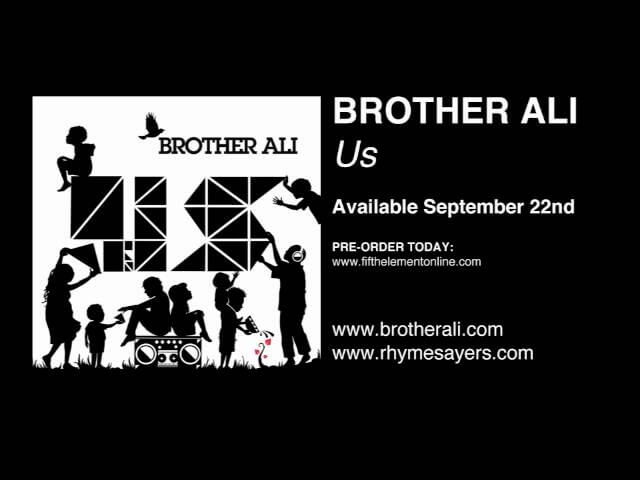Brother Ali belts out joy for the good life

Brother Ali hit the national radar with 2007's The Undisputed Truth, on which the Minneapolis rapper tossed out barbed, perceptive, and often deeply personal lyrics like bombs, from his joy at being a father on "Ear To Ear" to incisive and controversial political critiques like "Uncle Sam Goddamn." He's gained even more recognition for the new Us, which teams him again with longtime collaborator (and Atmosphere member) Ant. Us is all about connections: to his fans, his new family, and his Twin Cities community. Mixing in healthy doses of gospel, funky soul, and blues, Ali spreads a message of positivity with fierce intensity and without downplaying the dark side of life—in the spoken-word intro to the album, Public Enemy's Chuck D calls him “a soldier in the war for love." That fire is, if anything, even more passionate in his live show, and Brother Ali should have plenty to say at his two-night homecoming stand at First Avenue Nov. 20 and 21. The A.V. Club talked with him about putting himself into his songs, the importance of fighting for your identity, and the Berenstain Bears.
The A.V. Club: The Undisputed Truth had a couple of tracks that explained plainly what you’re all about. Now that you're more well-known, do you feel less pressure to do that this time?
Brother Ali: I felt like I needed a new approach. While I was building that reputation for putting myself and my life and my thoughts and my feelings and heart in my music, listeners started telling me that I was writing about them. And the more that I would talk to them, I would realize that our details didn’t have anything in common. And so I wondered if I could stretch that connection a little bit further.
AVC: In “Fresh Air,” you talk about domestic and suburban contentment. That’s rare in hip-hop.
BA: I see a big parallel between that song and some of the stuff that you hear Young Jeezy do, or Jay-Z, or 50, or Kanye. Like [Kanye West’s] “Good Life.” These men went from being extremely broke and hustling and thinking they could get killed at any minute, and because of the way that their music has been received, now they never have to have any contact with that again. They’re celebrating. “Fresh Air” is for the people who are really following the stories. It’s like me struggling to survive in my early music, to literally just get something to eat, and have people know that I make music. And then on The Undisputed Truth, I wanted to actually be fulfilled, to make a conscious choice to abandon my old life and make something new. And then on this one, man, all these things I was struggling to establish for myself, I kind of have them now.
AVC: “Fresh Air” also has what must be the first hip-hop reference to the Berenstain Bears.
BA: [Laughs.] I put a lot of things like that in songs to make Ant laugh. That was 100 percent because I thought Ant would think it was funny.
 Keep scrolling for more great stories.
Keep scrolling for more great stories.
